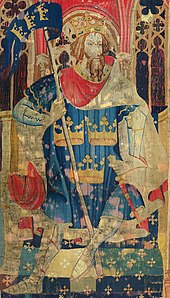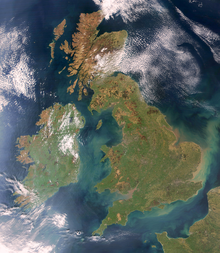| Revision as of 00:27, 30 March 2021 edit2a02:c7f:d821:f200:69:a590:aadf:345 (talk) Added a party to the list of known British nationalist organisations.Tags: Visual edit Mobile edit Mobile web edit← Previous edit | Revision as of 22:47, 12 May 2021 edit undoIffy (talk | contribs)Extended confirmed users, Page movers14,359 edits removed unsourced listcruft, trim see also section, tag what remains of the unsourced sectionNext edit → | ||
| Line 11: | Line 11: | ||
| ==Nationalism and unionism== | ==Nationalism and unionism== | ||
| {{unsourced section}} | |||
| Nowadays, as in the past, unionist movements exist in ], ] and ]. These movements seek specifically to retain the ties between those areas and the rest of the ], in opposition to civic nationalist movements |
Nowadays, as in the past, unionist movements exist in ], ] and ]. These movements seek specifically to retain the ties between those areas and the rest of the ], in opposition to civic nationalist movements. | ||
| ==List of British nationalist parties== | |||
| * British Commonwealth Party | |||
| * ] | |||
| * ] | |||
| * ] | |||
| * ] | |||
| * ] | |||
| * ] | |||
| * ] | |||
| * ], formerly Brexit Party | |||
| * ] | |||
| *] | |||
| ==See also== | ==See also== | ||
| * ] | |||
| * ] | |||
| * ] | * ] | ||
| * ] | * ] | ||
| Line 41: | Line 27: | ||
| * ] | * ] | ||
| * ] | * ] | ||
| * ] | |||
| ==References== | ==References== | ||
Revision as of 22:47, 12 May 2021
Not to be confused with English nationalism.



British nationalism asserts that the British are a nation and promotes the cultural unity of Britons, in a definition of Britishness that may include people of English, Scottish, Welsh, and Irish descent (those living in both Northern Ireland and Great Britain and historically the whole of Ireland when it was within the United Kingdom). British nationalism is closely associated with British unionism, which seeks to uphold the political union that is the United Kingdom, or strengthen the links between the countries of the United Kingdom.
British nationalism's unifying identity descends from the ancient Britons who dwelt on the island of Great Britain. British nationalism grew to include people outside Great Britain, in Ireland, because of the 1542 Crown of Ireland Act, which declared that the crown of Ireland was to be held by the ruling monarch of England as well as Anglo-Irish calls for unity with Britain.
It is characterised as a "powerful but ambivalent force in British politics". In its moderate form, British nationalism has been a civic nationalism, emphasizing both cohesion and diversity of the people of the United Kingdom, its dependencies, and its former colonies. However, nativist nationalism has arisen based on fear of Britain being swamped by immigrants; this anti-immigrant nativist nationalism has manifested politically in the British National Party and other nativist nationalist movements. Politicians, such as former British prime minister David Cameron, have sought to promote British nationalism as a progressive cause.
Nationalism and unionism
| This section does not cite any sources. Please help improve this section by adding citations to reliable sources. Unsourced material may be challenged and removed. (Learn how and when to remove this message) |
Nowadays, as in the past, unionist movements exist in Scotland, Wales and Northern Ireland. These movements seek specifically to retain the ties between those areas and the rest of the UK, in opposition to civic nationalist movements.
See also
- Pan-nationalism
- Pan-Celticism
- British unionism
- Cornish nationalism
- English nationalism
- Irish nationalism
- Scottish nationalism
- Welsh nationalism
- Ulster nationalism
- Britishness
- Civic nationalism
- Ethnic nationalism
References
Notes
- Motyl 2001, pp. 62–63.
- ^ Guntram H. Herb, David H. Kaplan. Nations and Nationalism: A Global Historical Overview: A Global Historical Overview. Santa Barbara, California, USA: ABC-CLIO, 2008.
- Motyl 2001, pp. 62–64.
- Miller 2005, p. 133.
- Brendan Bradshaw, Peter Roberts. British Consciousness and Identity: The Making of Britain, 1533-1707. P. 302.
- Smith, Smith & White 1988, p. 61.
- ^ Motyl 2001, pp. 64.
- Conservative Party leader David Cameron advocates liberal or civic British nationalism: "Cameron: I will never take Scotland for granted". Conservatives. 15 September 2006. Archived from the original on 24 September 2012.
Being British is one of the most successful examples of inclusive civic nationalism in the world.
The official party site.
Bibliography
- Miller, William Lockley (2005), "Anglo-Scottish Relations from 1900 to Devolution and Beyond", Proceedings of the British Academy, 128, Oxford University Press, ISBN 978-0-19-726331-0
- Motyl, Alexander J. (2001). Encyclopedia of Nationalism, Volume II. Academic Press. ISBN 0-12-227230-7.
- Smith, Michael; Smith, Steve; White, Brian (1988), British foreign policy: tradition, change, and transformation, Routledge, ISBN 978-0-04-327081-3
External links
- UK National Democrats- A Manifesto for Britain
- British Nationalism: an idea whose time has come- BNP Manifesto 1997
- Rebuilding British Democracy- BNP Manifesto 2005
| Nationalism in the United Kingdom | |||||
|---|---|---|---|---|---|
| British |
| ||||
| Cornish |
| ||||
| English |
| ||||
| Irish |
| ||||
| Scottish |
| ||||
| Ulster |
| ||||
| Welsh |
| ||||